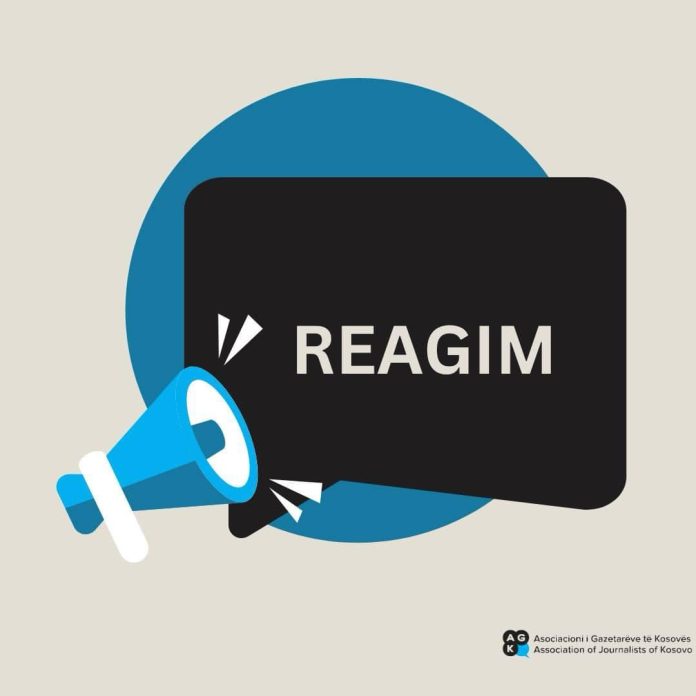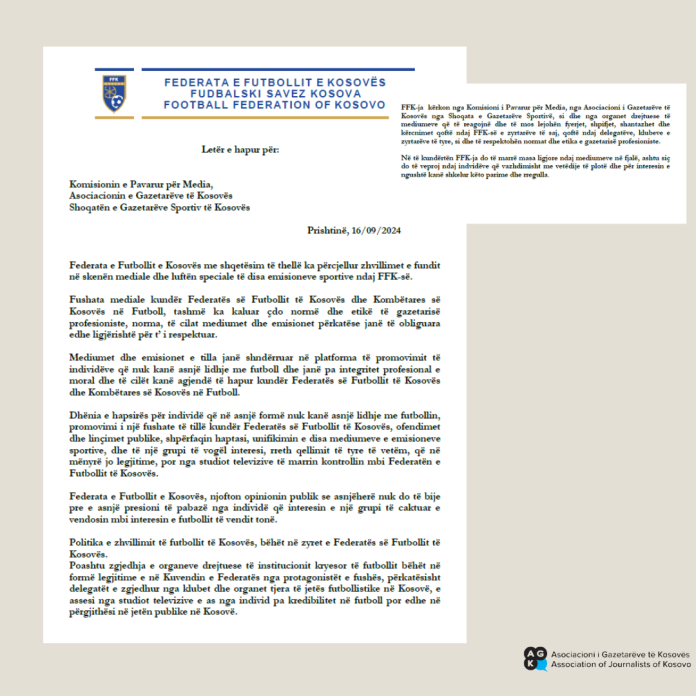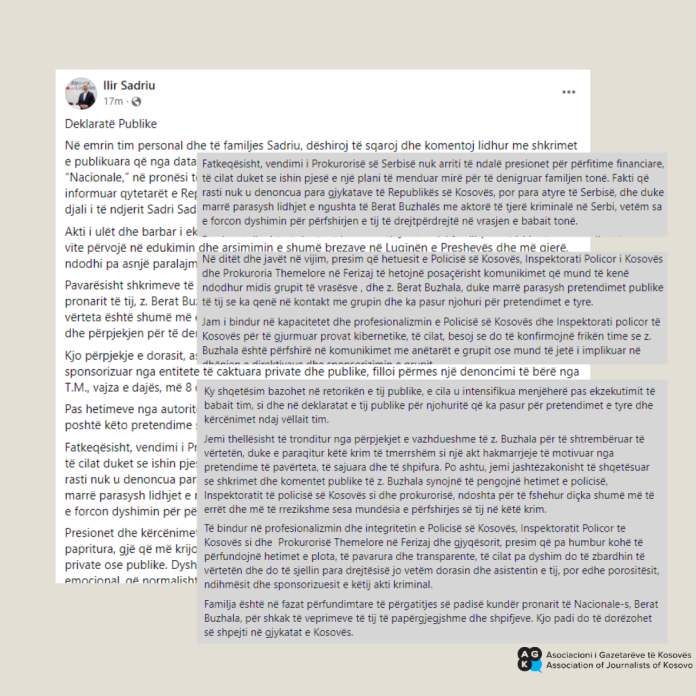Faktoje, the only fact-checking organization in Albania, part of the IFCSN and EFCSN, has faced increasing attacks over the past few years that have gained traction in the past weeks. These assaults come from various media outlets, public figures, and online platforms. This article provides an overview of these attacks, exploring why they are happening and their broader implications for media freedom and journalistic integrity in Albania.
Attacks against the Faktoje team, which implements the Code of Ethics and Fact-Verification Methodology that is internationally certified, have come from various media outlets. These outlets have been affected by Faktoje’s fact-checking of their published articles and have refused to correct their writings. This situation highlights the challenges faced by independent fact-checkers in maintaining journalistic integrity and accountability in the face of resistance from some media sources.
The attacks against Faktoje primarily revolve around accusations that the organization is involved in digital censorship, allegedly in collaboration with social media platforms like META (Facebook), to suppress dissenting voices and critical opinions. These claims suggest that Faktoje directly deactivates or blocks social media accounts and removes posts on particularly controversial topics. This central accusation has become the foundation of a broader defamation campaign against Faktoje, with detractors alleging that the organization misuses donor funds, operates with political bias, and participates in an international conspiracy.
Faktoje’s staff, including its CEO, have been subjected to personal harassment. Specific examples include the publication of personal photos of staff members when they were minors, the exposure of private data online, and organized social media attacks that incite online lynching and defamation. For instance, public figures and radical conspiracists have falsely accused Faktoje of working to manipulate the Albanian media landscape as part of an agenda linked to George Soros. Faktoje’s staff tells Safe Journalists that they constantly receive harassing and threatening phone calls, emails, and WhatsApp messages, also from politicians and businesspersons.
The accusations of financial mismanagement have further fueled the attacks, with detractors suggesting that Faktoje lacks transparency in handling international donor funds. This narrative has been amplified by online portals, media outlets, and public figures who have published defamatory articles claiming Faktoje misuses funds to promote media integrity and disinformation prevention. Despite being unsupported by evidence, these accusations are widely circulated, creating a distrustful atmosphere around Faktoje’s operations.
The hostility toward Faktoje arises from its role in fact-checking sensitive topics like COVID-19 and climate change, challenging disinformation spread by conspiracists, anti-government groups, and radical actors. By debunking these false narratives, Faktoje disrupts their agendas, making it a target for retaliation. These groups view Faktoje’s work as a threat, leading to coordinated attacks.
A significant driver behind the attacks on Faktoje is the allegation that the organization, along with Soros-funded civil society organizations, is part of a coordinated effort to weaken Albania’s opposition and other critical groups and advance controversial agendas, such as the depopulation of the country. While these accusations are baseless, they are frequently used by public figures and online media to undermine Faktoje’s credibility. By leveraging Soros as a symbol of foreign meddling, these groups tap into fears of external influence, framing Faktoje as part of an international scheme rather than an independent fact-checker focused on media integrity. These accusations are completely unfounded, as Faktoje has never received funding from the Open Society Foundation – Soros in the past five years, according to the director of Faktoje for Safe Journalists.
Moreover, Albania’s media content quality has deteriorated, with sensationalism and click-driven content becoming dominant. Weakening ethical journalism and self-regulatory practices have created an environment where disinformation flourishes. Many media outlets prioritize financial gain over journalistic integrity in this landscape, frequently publishing sensationalist stories that overlook factual accuracy. Faktoje’s debunking exposes these shortcomings, making it a target for defamatory attacks.
The attacks on Faktoje seriously affect media freedom and the fight against disinformation in Albania. Sustained defamation and harassment campaigns create a hostile environment for fact-checkers, leading to a chilling effect on independent journalism. This discourages fact-checkers from challenging entrenched political or financial interests and limits efforts to combat disinformation. Moreover, spreading false accusations, such as censorship and financial misconduct, erodes public trust in media organizations. When these claims go unchecked, they undermine the credibility of fact-checkers and weaken public confidence in the integrity of the media.
Additionally, the personal harassment of Faktoje’s staff, including the exposure of private information and online lynching, poses significant safety risks and damages morale. These attacks not only endanger journalists’ well-being but also discourage others from engaging in fact-checking work. At the same time, efforts to discredit Faktoje undermine its critical role as a third-party fact-checker for META, allowing misinformation to flourish unchecked and weakening the broader effort to combat false narratives in Albania.
Safe Journalists recommends that Faktoje establish a regular reporting framework that provides detailed data on its fact-checking activities. By sharing this data consistently with stakeholders, Faktoje can ensure that its role as a third-party fact-checker for META is fully understood and continue its dialogue with stakeholders regarding its pivotal role. Furthermore, journalists’ associations, other media freedom organizations, and civil society should strengthen ties to build a united front in upholding media integrity and ethical journalism standards, including strengthening self-regulatory measures.
Safe Journalists urges all media outlets to uphold the highest standards of journalistic integrity. Media outlets must prioritize accuracy, transparency, and accountability to foster public trust in the media and effectively counter disinformation.
Stakeholders involved in improving media integrity, media freedom, and the safety of journalists in Albania and beyond should continue their collaboration with Faktoje and other independent and professional media. It is crucial that they provide them with the necessary support to face ongoing challenges and strengthen media integrity.
Stakeholders should support Faktoje and other organizations’ efforts in educating the public and media professionals about the importance of fact-checking disinformation, and media ethics.
The tension between public watchdogs, including fact-checkers like Faktoje, and media outlets or public figures highlights broader challenges in balancing accountability and freedom of expression. While fact-checkers aim to combat disinformation with evidence-based corrections, they often clash with media actors who prioritize sensationalism, political agendas, or click-driven content over journalistic integrity.
This conflict is further complicated by partnerships with platforms like META, where efforts to curb disinformation can be perceived as censorship, especially on politically sensitive topics. As various public watchdogs compete for influence over public narratives, accusations of bias or censorship frequently undermine each other’s credibility, making it harder for the public to discern reliable information.
In light of these tensions, we argue for constructive dialogue between these actors to address their differences and ensure that all parties maintain the highest levels of integrity and ethics in their work, fostering public trust and media integrity.








